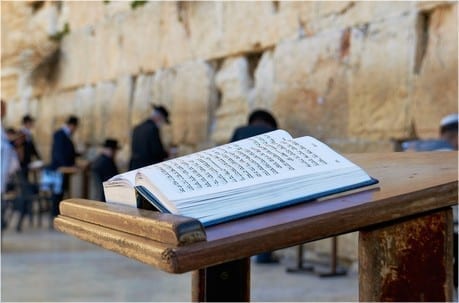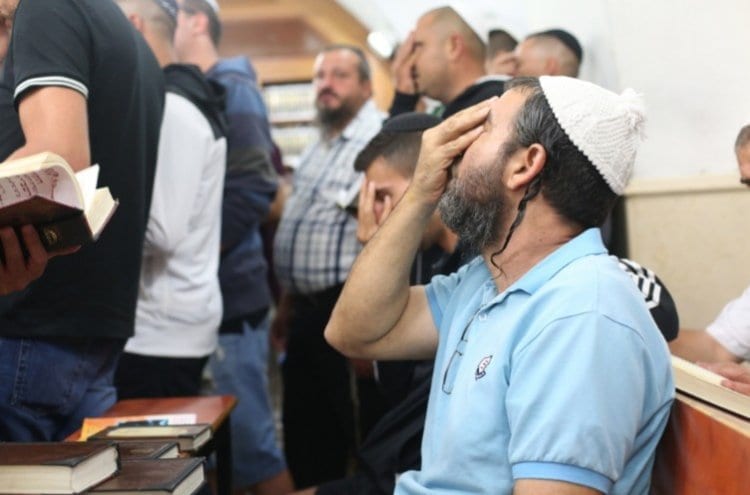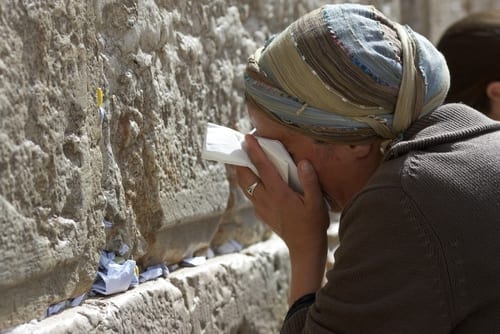Strife among family members isn’t rare. Unfortunately, it is all too common. In fact, the Medrash says it’s almost ubiquitous. World history is full of brothers that hated each other. From the beginning of time, “Cain hated Abel, Ishmael hated Isaac, Esau hated Jacob and the tribes hated Joseph.” This is history! Since the beginning of humanity, brothers were at each other’s throats, literally and figuratively! The Medrash tells us this is part of creation. Siblings don’t get along. The Talmud may allude to this when it says: “A man’s enemies are the people of his household.” (Sotah 49b)
If you ever sought incentives to make peace with family members, I’m going to give you all the incentives you ever needed.
There is a mind-boggling verse which we read on Yom Kippur: “Then you will call and Hashem will respond; you will cry out and He will say ‘Hineini, Here I am!’ Hineini is the equivalent of saying, “Here I am – at your service!” Each time Hineini is mentioned it’s a subordinate responding to a Superior with one exception. G-d says, “Call out, scream, and ‘I’ will answer, [HENEINI] HERE ‘I’ AM, AT YOUR SERVICE!!!
Isn’t that amazing?! G-d asks us; “What can I do for you?” What must we do to get G-d to respond in that way? Do you have to immerse yourself in the mikvah three hundred times, say Psalms all whole day or fast forty days and forty nights? The Talmud (Yevamot 62b) gives simpler method, “One who is nice to his relatives and draws them close as the verse says: “Then you will call and Hashem will respond; you will cry (scream) out and He will say, ‘Hineini, Here I am!”
The logical conclusion of this is that if you want G-d to answer your prayers all you have to do is be nice to your relatives and G-d will say, “Hineini, Here I am!”

Why is this so? The Maharal says, “A person who turns to those who are close to him – his neighbors, his relatives or his niece – and draws them closer is rewarded in kind. G-d declares, “I too am your Relative (karov),” and He responds to that person’s own needs, as the verse says: “For which great nation has a G-d Who is close (kerovim) to it, as is our G-d, whenever we call to Him!!!” The word close is ‘karov’ which means relative. It’s a very simple formula. G-d says, “I’m your relative. I’ll treat you like My relative. I just have to find out one thing, ‘How do you treat your relatives?” That’s what will set the tone for your relationship with G-d.
Of course, it works both ways. If you don’t treat your relatives with the respect that they deserve, then G-d says, “That’s the way I’ll treat you!”
We all know that there’s a mitzvah of inviting guests. But who are the people you should invite? You may answer, “Someone in synagogue that no one is giving attention to; that’s the one you should invite. The Sefer HaChaim says, “You invite your relatives (to your house). For that, in essence, is the primary mitzvah of hospitality! Then he continues, “There was a custom in our nation that every family picked a specific day of the year, in which they made a festive family meal. The meal itself did not take place on a Jewish Holiday. In Samuel 1 20,29 it states, “For we have a family feast-offering in the city…” What does that mean in English? That means the family barbecue like having a Labor Day picnic or a July 4th picnic. What type of holiday is Labor Day? You make it into one with your family. Anything that promotes family unity is a worthwhile endeavor.
You might think: I don’t need to worry about this! I love mother-in-law and she loves me. I’m at peace with my brothers and sisters; finally, something I don’t have to feel guilty about!” However seeking peace still applies to everyone; even if you never argued with any family member. The Mishna (Peah 1, 1) says: “These are the precepts whose fruits a person enjoy in This World yet the principal remains intact for him in the World to Come. They are; honoring parents… bringing peace between man and his friend…What is different between making peace, and every other mitzvah mentioned in the Mishna? The Medrash tells us many mitzvoth can only be done in a certain time and place. But the mitzvah of, “Seek peace and pursue it,” is not bound by time. We have to continually strive to promote and maintain peace in our own lives and the lives of others.
I would venture to say that each person knows at least one family that’s in a dispute. Try to help them make peace. Do you know how? By making them aware that when they are in a dispute, they sincerely, honestly, profoundly and deeply believe, “I’m right… and he or she is wrong!” Making peace is no easy task. Sometimes, it can take months or even sometimes years! Still, it’s worth a try.
In Parshat Korach it says, “There shall no more be like Korach and his followers.” The Talmud (Sanhedrin 110a) says “There shall no more be like Korach and his congregation,” is a negative commandment; one of the 613 mitzvoth of the Torah – not to maintain a quarrel. Rather, “Be like the disciples of Aaron, who love and pursue peace; who love people and bring them closer to Torah.”

Rabbi Chaim Shmuelevitz explains that the verse “There shall no more be like Korach and his followers,” (Numbers 17, 5) is a prediction as well. ‘There will never again be such a one-sided argument, where one party was so clearly right and the other party so clearly wrong as in this case of Korach and his followers arguing with Moses. This was a case where one side was 100% right and the other side 100% wrong. Never again would there be such a morally lopsided argument.’ The Torah is asserting that never again in history will there ever be such a dispute so clear-cut as to who is right and who is wrong. Perhaps there may be a future dispute where one party is 99 percent right or it may be tilted 90/10 or 80/20 in favor of one side. But we’ll never have as clear-cut a dispute as that of Korach with Moses.
Sometimes we can justify our anger or dispute with someone. We may, in fact, be ‘almost’ right! Nevertheless, it is only ‘almost’. Maybe his reaction to what we did or said was very inappropriate and totally out of proportion. Nevertheless perhaps we did or said something wrong in the first place to trigger his reaction. Even if your remarks or actions are only 10% or 5% wrong, it is worthwhile to apologize – even if 90-95% of the blame is with the other party. “There will not be like Korach and his Congregation” means that no one will ever be 100% right and totally beyond needing to apologize.
When in dispute with your family it’s like you’re walking around with a burden on your back. When you make peace everyone will be freer, happier and you will be doing them the biggest favor. All G-d wants from us is that there should be peace amongst us.
The Tanna Devei Eliyahu Rabbah states the following: “My beloved children, what do I [Hashem] ask of you? Only that you love one another and respect one another.” Is that too much for our Father in Heaven to ask of us?! The Ksav Sofer says, “True peace is when people feel love for one another and are happy for each other’s good fortune.”
Based on Rabbi Yissocher Frand
This article is dedicated in loving memory of Tuvyah Shlomo ben Naftali Tzvi HaKohein z”l




